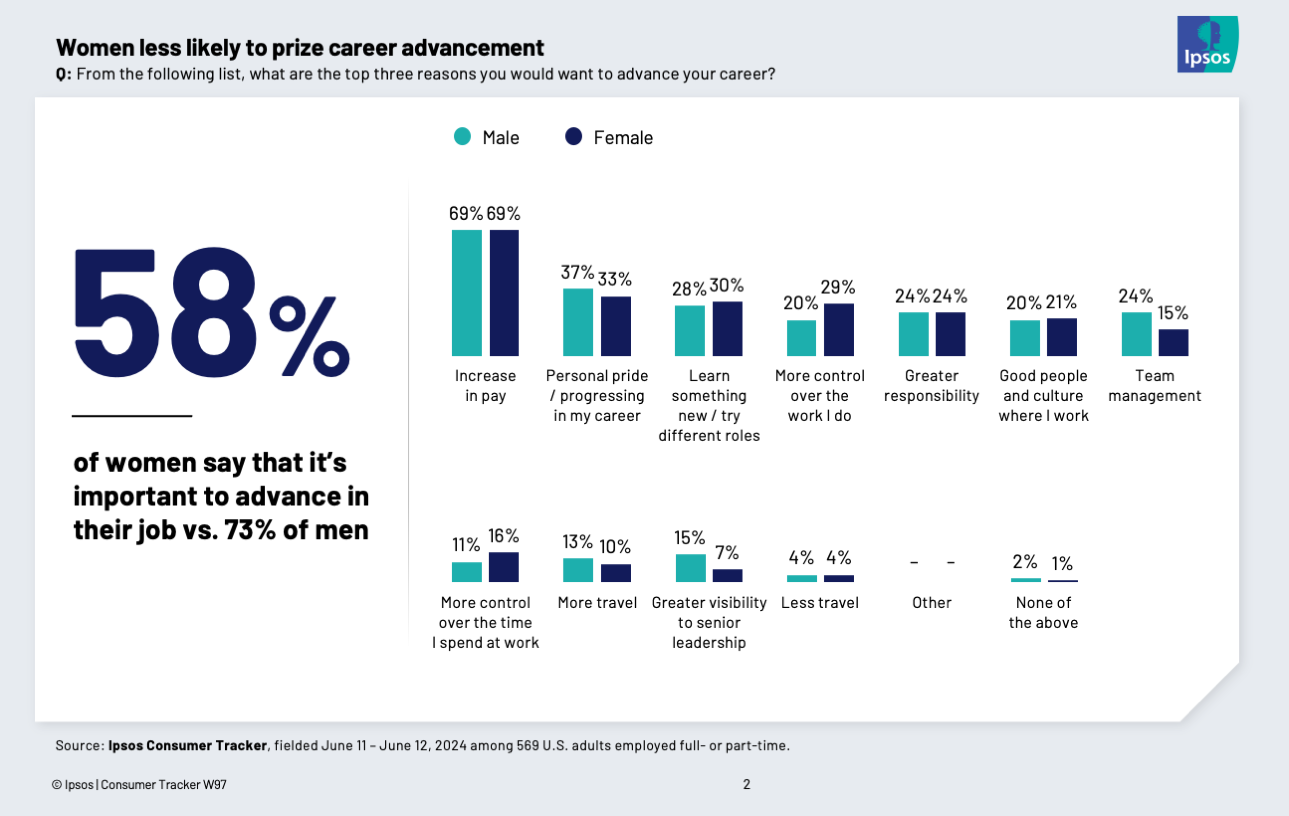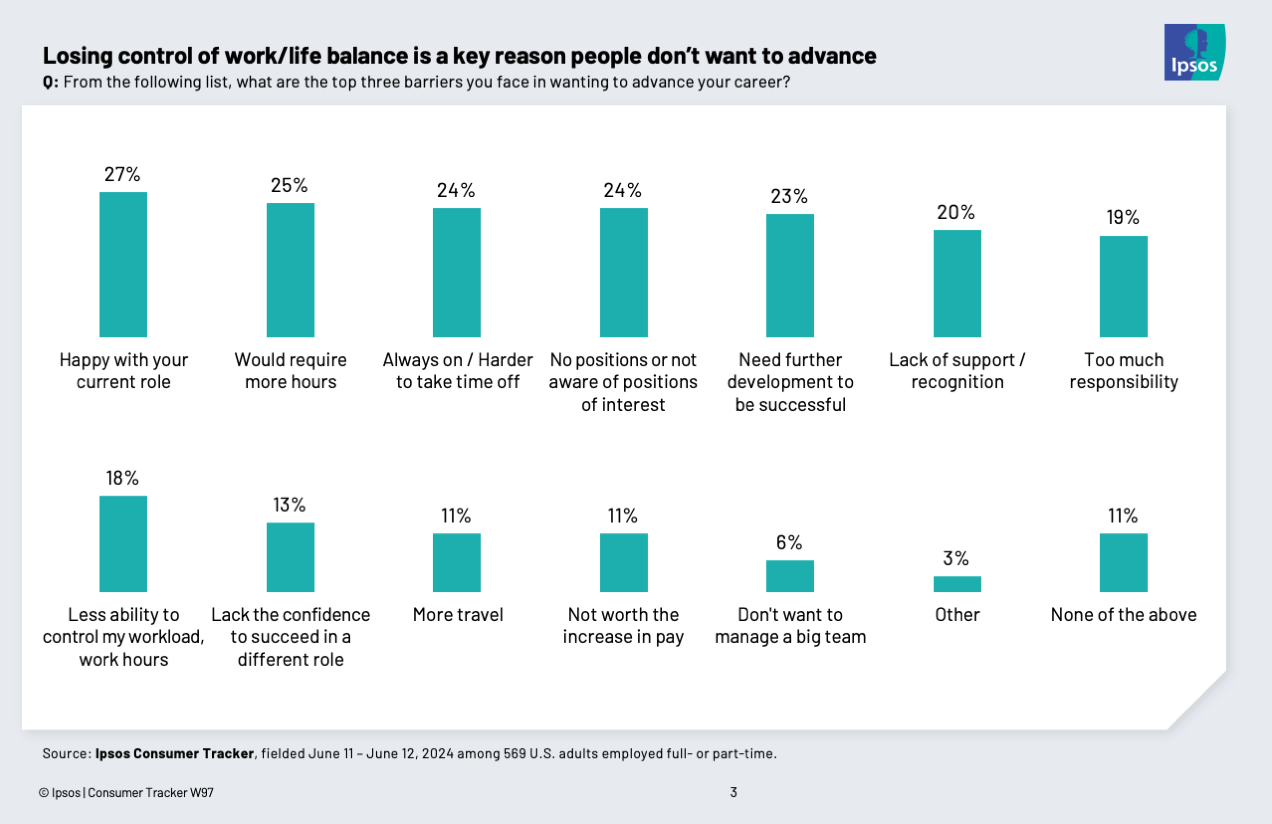Women have less desire to advance their careers. Why?
The Ipsos Consumer Tracker asks Americans questions about culture, the economy and the forces that shape our lives. Here's one thing we learned this week.

Why we asked: We see a lot of headlines about generational and gender difference in work/life balance and desire for career advancement. So will that show up in our data?
What we found: Yes and no. So yes, there’s a gender difference in whether or not we want to advance in our jobs. Men are more likely to say it’s important (73% to 58%) to climb the corporate ladder at their job (and twice as likely to say it’s “very important.”) But no, there’s not a difference between the 18- 34-year-olds vs the 35- to 54-year-olds. And there’s no difference by income either. In terms of why people seek advancement, not surprisingly higher pay is the biggest driver (69%). Then comes pride (35%), learning or doing new things (29%), and more responsibility and control (24% each). While the desire to advance splits by gender, the reasons for wanting advancement do not.

Losing control of work/life balance is a key reason people don’t want to advance
Why we asked: So does that mean that work/life balance isn’t as big a thing as we read?
What we found: Actually, that relates to several of the most-cited reasons people don’t want to advance. The top reason is a positive one: People are happy with their current roles (27%). But right up there with are a series of work/life issues, like that a bigger job would require more hours (25%), make it harder to take time off (24%), be too much responsibility (19%), and less ability to control work load or hours (18%). Interspersed in there are some workplace-specific issues like no available or interesting positions (24%), a need for more career development first (23%), and a lack of support (20%). While women are less interested in advancing, there is little gender difference in reasons why (men are a bit more likely to say more hours are a turn off.) Nothing pops off the page on the age splits either.
SEE MORE IN IPSOS TOP TOPICS: “ECONOMY AND CONSUMER SPENDING”
More insights from this wave of the Ipsos Consumer Tracker:
Fewer Americans see higher prices, with one big exception
The Ipsos Care-o-Meter: What does America know about vs. what does America care about?


